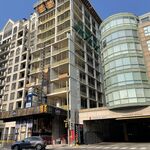Sagaris88
New Member
This is a blanket statement then too to suggest that because I don't know his whole life story then therefore that person could know anything. For all we know, he can write a story on microbiology but because I don't know his whole life story, I must take his word on it that what he's saying is authoritative on the matter.This is a really silly blanket statement to make. People are complex. Do you know this author personally? His whole life story, education, etc? Just as I'm sure you know lots about lots of different topics, I'm sure this author knows lots about different topics too.
In his bio, no where does it say his credentials about urban planning, the environment and yes, microbiology. What it does say is that he's a leading the "former Editor of Toronto Star Wheels and thestar.com/autos. His columns, blogs and feature stories, particularly about motorsport, are industry-leading."
Idk about you, but that doesn't scream credibility to talk about the urban planning side of highways and just seems credible to the driving side of highways.





